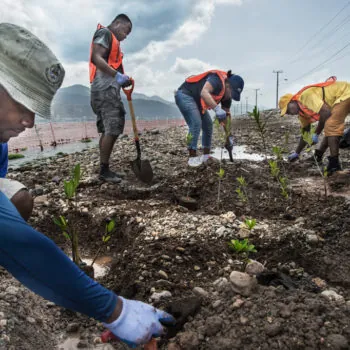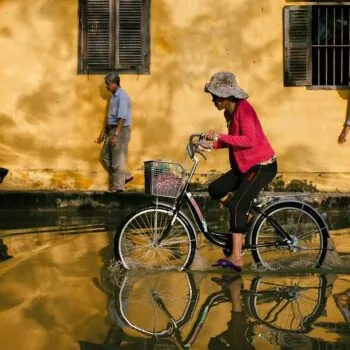G7 Development Ministers are meeting this week to discuss solidarity and prosperity for all. They will be followed by the Climate and Energy Ministers on the 25th-27th of May, before G7 Leaders gather at the end of June. In a global context highly influenced by war and pandemic recovery efforts some might argue that adaptation and resilience to climate impacts should not be priorities. The opposite is true. Climate action benefits international security and stability and is essential for maintaining trust in multilateralism.
Solidarity, Security and Climate: a complex but necessary nexus
Germany can lead the 2022 G7 to make significant “progress for an equitable world” with their five presidency priorities focused on solidarity and prosperity for all.
The war in Ukraine, surges in energy and food prices, and the ongoing economic recovery from the pandemic are centre stage in international politics. However, not only has the G7 been able to maintain climate in its agenda, but it is also a recurrent priority across the different tracks.
Last week, both the Foreign Affairs and Agriculture Ministers’ communiqués had references to climate action, environmental protection, and food security. The nexus between climate change and international security is complex, but it is being addressed by the G7.
The G7 Development track has a responsibility to show solidarity to vulnerable communities, and work on the interlinkages between health, humanitarian aid, security and climate, ensuring a just transition. Leaders have acknowledged that building resilient, low-carbon infrastructure in developing countries will require shifting investments from billions to trillions. Furthermore, increasing access to vaccines and robust health systems, as well as providing financial and technical support to deal with multiple interrelated crises are essential elements in this context. This should include scaled up efforts by the G7 to address climate risk and the losses and damages brought on by sudden and slow onset of climate disasters. By proposing an ambitious agenda, the G7 ministers and leaders can drive stronger cooperation with the Global South. This will help manage tensions and secure breakthrough agreements in fora such as the UNFCCC.
Recommendations for G7 on climate resilient development
Through the Development, Climate and Energy tracks and the Leaders’ Summit, the G7 should:
- Set up a ‘Global Shield’ against climate risks. This should build on the existing InsuResilience programme and include both insurance and finance options, with a stronger focus on the latter, to respond to the needs from vulnerable countries.
- Announce a multi-year roadmap for the development of the Global Shield to be presented at the G7 Leaders meeting. The initial phase should be delivered before COP27 and establish the Global Shield as an umbrella initiative offering insurance and finance options. A second phase should expand the Global Shield umbrella to include Loss and Damage and longer-term resilience.
- Help develop a plan for achieving the Glasgow commitment to double adaptation finance. Communiqué language could clarify G7, MDB, DFI and multilateral climate funds’ contributions and a roadmap for delivering on the Glasgow Climate Pact agreement to double adaptation finance.
- Tackle barriers to investment in resilience and recovery. The Cornwall G7 Panel on Economic Resilience should continue, G7 countries should explore resilience partnerships with vulnerable developing countries. Ministers should agree on a G7 roadmap for reforms to the international economic and development architecture and financial mechanisms, ensuring public finance plays a complementary role to private insurance. Reforms to MDB mandates or the IMF Resilience and Sustainability Trust should be included.
- Acknowledge the importance of addressing Loss and Damage and its relevance for climate resilient development. A solidarity centred G7 needs to address the topic to build trust with V20 and G20 countries. It should amplify and contribute to the V20 Loss and Damage pilot funding facility and identify a package of national and institutional solutions. In the UNFCCC context, the G7 should commit to fully resourcing the Santiago Network and support the goal of establishing a global financing facility.


